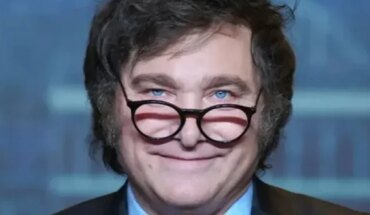The recent “struggles” that have arisen around copyright, particularly among artists, have highlighted issues that can be reviewed more calmly later, but that in terms, at least sociological, have shown us the symbolic precariousness – not only material of the majority – in which the Chilean artistic field finds itself. This was already evident before, but in the discussion of the subject it has been made explicit in an obvious way. Polarization has edges of a clear dichotomy, a modern-late heritage that is shown in the worrying individualism that has persisted for decades, transversally, in various generations. The worrying thing is that it is not only this, but a sum of factors that worsen the current state: a complete depoliticization of art in Chile and a great lack of “serious” research of artists (the latter would lead us to the fragmented and deficient education that exists in the country).
Chile does not find a strong cultural identity with regard to contemporary arts (at least since the late 80s and early 90s of the last century), due to a multiplicity of structural factors, among them, putting as a “formal anecdote” memory processes, creoles, temperamental scope of the territory, etc. If the gaze has been more than a century in the central north, the comparative delay is worrying, because from the symbolism, the historical avant-garde, neo-avant-garde, including those of the early 90s in the United States and Europe with respect to the radical politicization of artists in relation to the actions of violation and hope of change of reality through technologies, in our country it has been the subject (and not everywhere) of formal study, but it has not penetrated in the historical sense of a change on the processual and perceptual axes to mobilize a “reality towards another axis of reality”.
Traditional politics, in this regard, has had its enormous responsibility, because, in ignorance of the radical force of change of symbols that the arts possess, they have only considered it as a necessary instrument in the “measure of the just”. There is no real contemporary art policy in Chile, only a maintenance of a state of affairs that accommodates certain groups and makes others increasingly precarious.
The studies concerning the historical criticisms that emerge about the production of symbols of this, given from the humanist sense and its fragility, cannot be treated here because of the length and because it would lead me to other topics. The problem is much more complex and extensive to explain; this text is just a sketch in a short column.
In this scenario – without political poetry – a process of encounter, as the construction of a new Constitution should be, has become, among a large number of artists, a regression towards the confrontation of a supposed “atrocious enemy”. This is where two of the situations I mentioned at the beginning come together, in general terms: the historical structural precariousness of the country in this matter and the individual interests of a minority, these protected by the former, since the symbolic precariousness of the artistic field generates individualities such as those I mention. If we add the pauperism in regard to the growing increase in lack of study, a bomb is created.
In this sense, when the conditions I mention exist, what has historically happened in many places is generated: clinging to conventions and following patterns based on terror discourses. Part of the examples of the latter can be seen in propagandas that do not appeal to forceful arguments, but to the fiber and rapid emotion, and that gives results in immediacy, also evident faults to the truth in matters already known and known throughout the world. But, I wondered a few weeks ago, why do so many artists so easily get into things easily verifiable with hard evidence? Well, the answer lies in the small reflection above: there are few privileged (only economically) who fear losing what they already have, and the disinformative drag, with a lot of campaigning, which absorbs a large number of subjects with very little symbolic “capital”.
The constituents are also daughters and sons of this history of precariousness and/or interests (economic or political) in the issue. I do not know whether you are reflecting on yourself after the tremendous rejection of your report 2 in plenary, and not to remain alone in the political recriminations of those who voted in this or that way. The truth is that they should do it and really review the arguments based on reality, not emotionalities about fear and easily refutable information only by reviewing a little national and international data. I will not delve into what I have already mentioned in different columns, but it is minimal to review, for example, the Universal Declaration of Human Rights, Berne Convention, Paris Convention, administered by the World Intellectual Property Organization, and thus go on and on. Personally I may not agree with the last organization in many matters, nor may I agree with the conventions because of certain anachronisms with regard to our “digital age”, but it is the minimum to which it appeals and which is not being considered in the specific issue of copyright, which was not accepted, I repeat, in plenary.
My “columnistic” invitation is to try to be based on facts; not a few people will always be very willing to give them evidence and historical data so that artists and constituents draw their own conclusions, but they must read them, because – according to what has been seen in social networks – at least it does not seem that they do, both the norms and the articles; or perhaps it is wanting to see what you want to see, following the disinformative and unreliable emotion of propaganda made by those who do not want to lose the monopoly of their businesses and by at least 5% of national artists who take care of their personal privileges.
This is where, strangely, almost no artist or creator saw that the most delicate parts of the rejected article granted ownership to management entities (which actually function as industries) and material property. The latter may be more technical, but apparently it has become evident and will have to be changed. Now, in the case of related rights, a great deal of attention must be paid, because that is where legal loopholes similar to the same thing that has already been rejected can enter.
It is to be hoped that reason and the clear revision of the concepts prevail, and in what way they are combined in this and other issues so important for all.
The content expressed in this opinion column is the sole responsibility of its author, and does not necessarily reflect the editorial line or position of El Mostrador.





